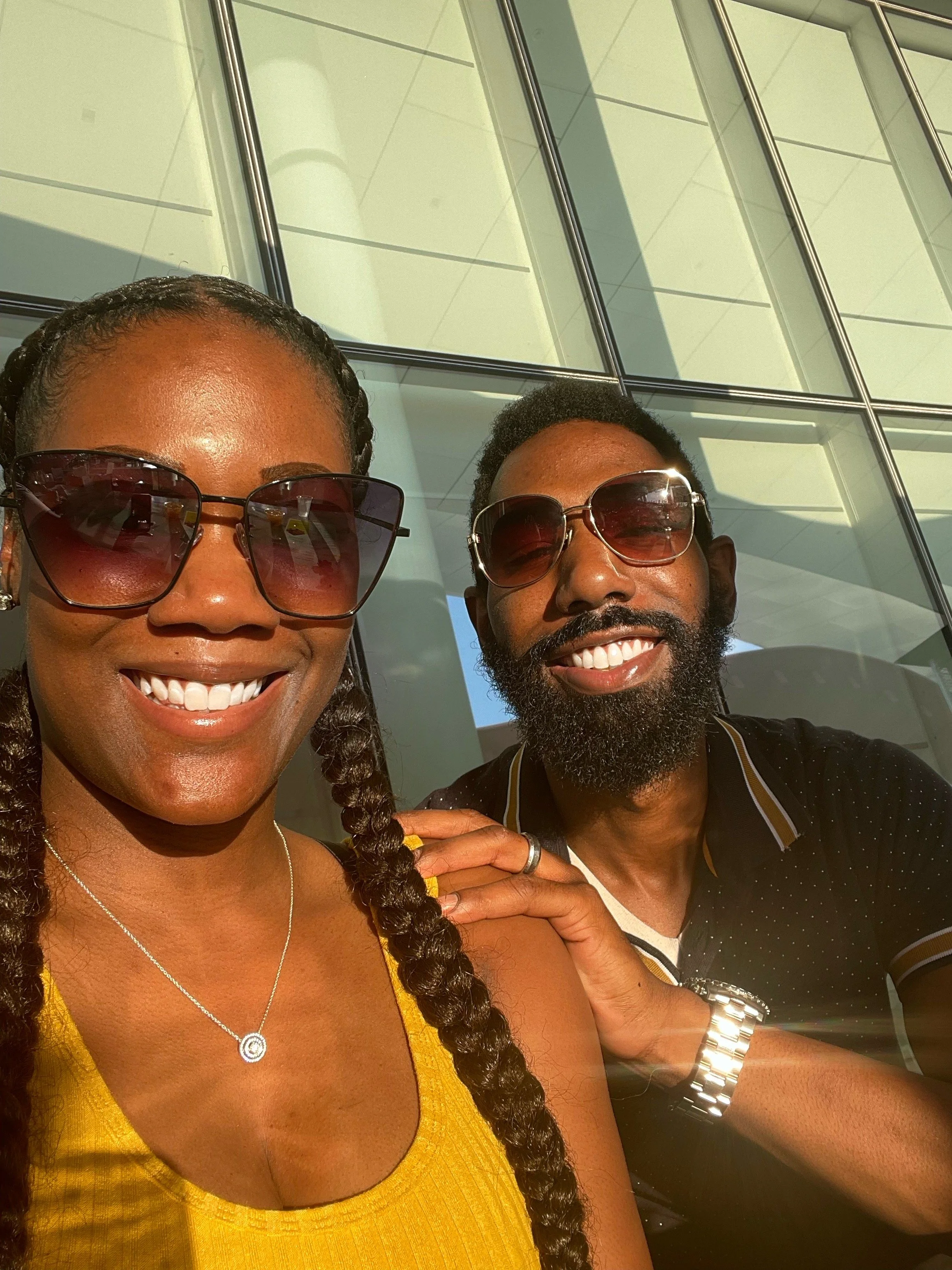How I Learned to Speak My Husband’s Love Language
When my husband and I started dating, we instantly clicked. The connection we shared was literally unmatched (and still is). Everything I was missing from previous relationships, he filled completely! Why is that you ask?
Because he spoke my love language. 😏
Many of you probably know about “The 5 Love Languages” by Gary Chapman. Definitely worth checking out! If you don’t know your love language or your spouses, Dr. Chapman does have the quiz available (for free) on his site where you can learn your language.
Now, speaking our partner’s love language doesn’t come easy for all of us. But it can obviously be learned over time. My husband knows that if I’m having a bad day, if he comes home and is proactive with helping me with chores or managing the kids, runs me a bath or rubs my back, any tension will immediately be alleviated.
If you haven’t guessed, my love language is absolutely acts of service!
It’s so important to know both how you best receive love as well as how you best express love. And just know, how you best express love, may NOT be how your partner best receives it or how YOU want to receive it for that matter. So, learning your love language andddd your partner’s love language can strengthen your bond and ensure you feel loved in the way that resonates most with you.
So, what love language do you primarily speak? Maybe you have one specific love language. Maybe even tied for two. And if you’re like me - maybe it has changed over time. I would say, before kids my love language was definitely physical touch and words of affirmation. Now, acts of service is HUGE for me.
I loveeee when my husband takes initiative and is proactive with things that need to be done around the house or with the kids. Errands, chores, or basically anything to relieve a little bit of mommy’s workload reallyyyy turns me on, haha.
——
Learning my husband’s love language was surprisingly easier for me to master in the beginning of our relationship, but again, over time after the “honeymoon phase” ends (which I believe it never should but let’s be realistic) and once you add kids to the mix - our priorities, our desires, and our love language just may change. So as he and I have evolved- we have had to relearn each other in a variety of ways. What once worked - doesn’t necessarily work the same way.
While physical touch is definitely my husband’s love language - how I communicate this particular love language to him has changed. If all he hears is complaining or negativity, it makes him less receptive to physical touch of any aspect. So creating a happy easy going environment is key for him. AND complimenting him (words of affirmation) and showing appreciation for what he does is hugebas well. So when he feels good emotionally and when we also connect regularly spiritually by praying or worshipping together - he responds better to physical intimacy. Make sense? 😂
And if food was a love language, it would be his! All hell could be breaking loose, the house could be in shambles, and nothing could have been accomplished that day, but if there is a hot meal he will feel so grateful. Music is also HUGE for him and one of the ways we connected when we first started talking. So I try to incorporate that into how I speak his love language. For example, creating a nice playlist during physical intimacy (physical touch) or giving him a vinyl album to add to his collection (gift giving) would really please him. I’ve truly learned how to be more thoughtful and tailor how I express his love language by incorporating things he’s passionate about.
So learning someone’s love language can absolutely go deeper than just knowing what type of love they are prone to accept. It’s also understanding the why and the how - to ensure you are expressing it in the way they would best receive it.
Learn to Speak Their Language: What to do, and what not to do.
Below I’m going to break down each individual love language and note some examples of how you can learn to speak your partners love language.
(Remember, these are just a few basic examples but of course everyone is different. I would encourage you and your partner to sit down after taking Dr. Chapman’s quiz to discuss the results and specific ways they can learn how to speak your love language and vice-versa)
Acts of service - Any act that relieves the burden of responsibility
Chores / cleaning
Errands
Breakfast in bed
Say “I’ll help!” or “Let me do that for you.”
Being proactive is key!!!
Turn offs - laziness, broken commitments, acting “burdened” when helping
2. Physical touch - Any sexual and/or non sexual touch that shows love or using body language and touch to emphasize love.
Massages
Sex and physical intimacy of any kind
Hand holding, hugging, kissing, or other forms of PDA
Remember: Physical touch fosters a sense of security and belonging.
Turn offs - Neglect or rejection
3. Gift giving - Thoughtfulness / visual representation of love
The receiver thrives in the love and thoughtfulness and effort behind the gifts
Doesn’t have to be expensive gifts
Flowers / any “just because gift”
Remembering special occasions
Turn offs - missing or forgetting special occasions, lack of thoughtfulness, missing “hints”
4. Quality time - Focused and undivided attention (remove distractions- ie. kids / electronic devices)
Date night
Pillow talk
Romantic evening in house
Creating special moments
One on one time
Turn offs - feeling like they are not a priority or always “sharing” your attention
5. Words of affirmation - Verbal compliments that express love and appreciation.
Love note
Encouragement
Appreciation
Recognition of efforts
Unexpected note or text
Hearing the reasons behind the love is key.
Turn offs - harsh tones, insults or criticism, not saying “thank you”
Speaking someone’s love language is not a one and done type of thing. It should be practiced regularly. And again, as we evolve, so will our love language. So remember to communicate those needs with your spouse and be ready to listen to theirs as well.
Ultimately, we should learn how to incorporate all 5 love languages into our relationship. It’s so beneficial to stay abreast on how to express your love in a variety of ways.
Switch things up and don’t be afraid to voice to your partner if they can do something better. It’s all about communication, balance, and being able to show your love in different ways. And of course, being able to reach your partner in a way they are most receptive to.
Let me know if you have more tips on how to express love for any particular love language!
🤍 J. Leigh




